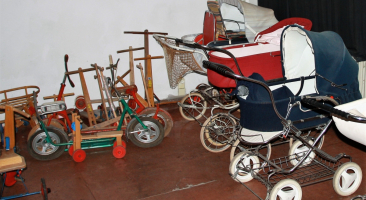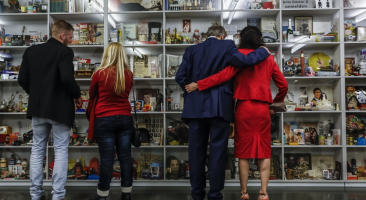The Collection of the Centre for the Documentation of Every Day Life in the GDR – A Source for Historical Research
Given the growing interest in images and objects, the material culture of everyday life has been accepted as an authentic source for historiography. Its significance for historical research, however, has been underrated on the part of professional historians. Thus, the project’s objective is to mediate between academic and museum staff, and it aims at an enhanced dialogue between historical, material and cultural studies.
Objects of everyday life are the subject of three historical research projects: objects are investigated as representations of power, as representations of various lifestyles, and in biographical contexts. The results will be presented in an edited volume and in two books based on doctoral theses. An online portal will present the investigated objects to the public.
Project management: Jürgen Danyel in cooperation with Irmgard Zündorf (Knowledge Transfer and University Cooperation)
Funded by the VolkswagenStiftung as a part of ‘Forschung in Museen’.



